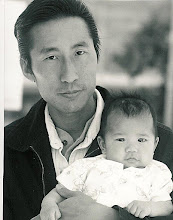
A few SEIU friends and other labor leaders from SF and other parts of the US and Canada have just returned from a delegation to China which included many intense meetings with the All-China Federation of Trade Unions (ACFTU) and historic building of labor solidarity and new global relationships with the world's largest union.
Here's background from the Action LA labor watch site -
After Long Campaign, Chinese Union Will Unionize All Wal-Mart Outlets
Labors Watch China - Projects of ActionLA Coalition
August 19, 2006
1) Wal-Mart sets up 19 trade unions in Chinese outlets (People's Daily, China)
2) Wal-Mart Bows Down to China (Ohmy News, South Korea)
3) Wal-Mart's Union (Andy Stern, SEIU, USA)
1) Wal-Mart sets up 19 trade unions in Chinese outlets
August 19, 2006
People's Daily (China)
FULL ARTICLE The world's retail giant Wal-Mart has established 19 trade unions in its Chinese outlets since late July, disclosed an official of the All-China Federation of Trade Unions (ACFTU) on Friday.
"The negotiations between Wal-Mart and the ACFTU have proved fruitful. The two sides have agreed to set up trade unions in Wal-Mart Chinese outlets on a cooperative and harmonious basis and in line with Chinese laws," an ACFTU official said Friday in an interview with Xinhua.
The two sides agreed that the candidates for trade union posts in a Wal-Mart Chinese outlet should be approved by a higher-level trade union after work staff's nomination.
...Wal-Mart opened its first outlet in China in 1996. Until July 29 this year, no Wal-Mart Chinese outlets had set up trade unions.
The world's leading retailer has some 1.6 million employees in 16 countries and regions. And Wal-Mart's 60 Chinese outlets employ 23,000 people.
Wal-Mart has traditionally not allowed trade unions in its outlets, for which it has been widely criticized by human rights groups and labor organizations.
With mounting pressure from the ACFTU and the public, Wal-Mart China backed down in 2004 by saying in a statement that "Should associates request the formation of a union, Wal-Mart China will respect their wishes and honor its obligations under China's trade union law."
On July 29, its outlet in Jinjiang City, east China's Fujian Province, set up a trade union. In the following 20 days, another 18 trade unions were established in Wal-Mart's outlets in the cities of Shenzhen, Nanjing, Fuzhou, Jinan, Shenyang, Dalian, Nanchang, Qingdao, Wuhan and Taiyuan.
...
2) Wal-Mart Bows Down to ChinaAfter a long fight the American giant allows trade unions in all 60 of its Chinese supermarketsOhmy News, South Korea
August 14, 2006
FULL ARTICLEXu Zhiqiang (xuzhiqiang)
...
3) Wal-Mart's Union
Andy Stern, President, Service Employee International Union (SEIU), USA.
August 17, 2006FULL POST AT www.huffingtonpost.comWell, I went to my first unionized Wal-Mart; unfortunately it had to be in China
for the experience.
Three decades ago, with over 800 million people in farming and state-owned enterprises aging, China initiated a series of economic reforms. They chose to do what Russia failed to do: open itself to the idea of investment and what went along with it.
In opening its market, China made investment king -- and other than political stability -- it trumped all other considerations.
Today the Chinese government is feeling more and more confident in its dealings with multinational corporations, or Foreign-Owned Enterprises (FOEs). Once FOEs became a necessary and revered source of investment, they could do no wrong.
For big business, despite all their claims of wanting to promote democracy, the 1.3 billion-person Chinese market plus a dominant and stable government was too hard to resist in this new era. So throwing 20th century values to the wind, the corporate money rolled in, particularly along the eastern coast.
The financial capital Shanghai (and China's New York) constructed as much office space as Manhattan in 2005 alone. Half of the world's concrete was poured in China last year. By the 2008 Olympics, 110 new hotels will open for business in Beijing.
And last month, I said month, China reported a $10 billion trade surplus.
Wal-Mart simply overplayed their hand.
The Chinese Constitution allows workers the right to have unions by simply applying for recognition. The union tried to find, as they would say, "harmonious relations" with management, but Wal-Mart rebuffed them as they have unions everywhere. For two years the All-China Federation of Trade Unions (ACFTU) made efforts to organize workers, and Wal-Mart still resisted - that is, until the government and the union joined forces.
The workers stepped forward and Wal-Mart was "persuaded" to allow the workers' desire to be recognized. Today there are 16 stores organized, and growing interest in the union.
It's a huge signal not only to Wal-Mart, but also to multinational corporations and FOEs that investment was once supreme, but stability, workers, and the rule of law is now getting more attention. The ACFTU believes it will go from 30-40 percent union recognition in the private sector to 80-90 percent by 2008.
Today's lesson is that a more confident China is willing to set the rules on investment, and no employer is big enough to ignore them.
Tomorrow - what does this mean for the workers?







